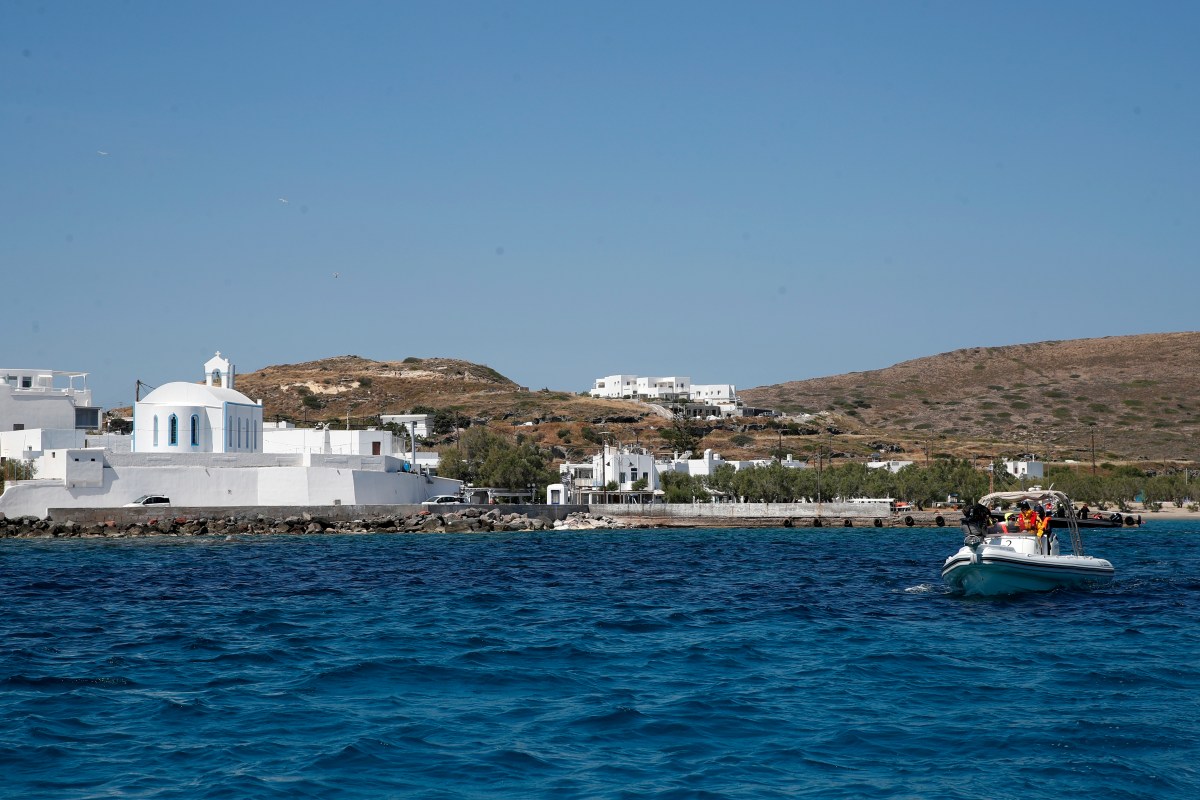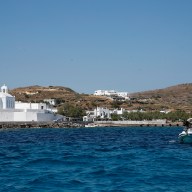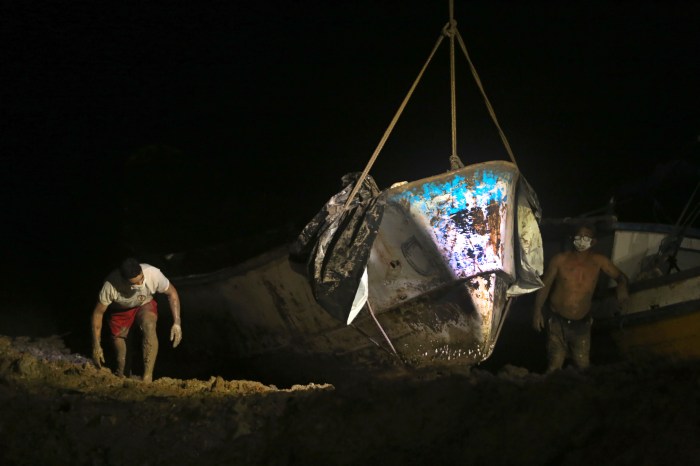ATHENS, Greece (AP) — Greece aims to create two large marine parks as part of a 780-million-euro ($830 million) program to protect biodiversity and marine ecosystems, with the plans to be formally announced at an international oceans conference starting in Athens Tuesday.
But the plan has irked Greece’s neighbor and regional rival, Turkey, while environmental organizations say the initiative doesn’t go far enough, noting that the country also allows environmentally harmful practices such as energy exploration in sensitive marine environments.
“We are increasing the size of our marine protected areas by 80%, banning harmful fishing practices and using new technologies to monitor and enforce the commitments we make here,” Prime Minister Kyriakos Mitsotakis said ahead of the conference.
The two-day international meeting being held in Athens aims “to catalyze global action against two overlapping crises, the climate crisis and the crisis of our ocean,” Mitsotakis said. “Countries have come with specific proposals to take decisive action.”
With thousands of islands and islets and one of the longest coastlines in the Mediterranean, Greece has said it will create one new marine park in the Ionian Sea and one in the Aegean Sea, bringing the total area of marine protected areas to over 30% of its waters.
But environmental organizations have called for stronger commitments to environmental protection.
Under a slogan of “The sea is not for sale,” Greenpeace urged leaders attending the Our Ocean Conference in Athens to take concrete measures to protect the world’s marine environment.
The conference “must not be simply an opportunity for governments to congratulate themselves for what they have said until now,” said Nikos Charalambidis, head of Greenpeace in Greece. “On the contrary, this must be where serious steps and action plans are presented to prevent the looting of our seas.”
Greenpeace, the World Wildlife Fund and other organizations have leveled particular criticism at Greece for allowing deep-sea seismic exploration for energy and mineral resources in the Hellenic Trench, which includes the deepest waters in the Mediterranean at more than 5,200 meters (17,300 feet).
The trench, which stretches from southwestern Greece to Crete, is a vital habitat for the Mediterranean’s few hundred sperm whales and for other marine mammals already threatened by fishing, ship collisions and plastic pollution.
Asked whether the Greek government planned to extend protection to the entirety of the Hellenic Trench, Theodoros Skylakakis, Greece’s minister for both the environment and energy, stressed that adapting to a green economy requires significant funds over the coming decades.
“We need to be a lot more efficient in everything we do. And not trigger our reaction by ideology but rather trigger it by science, by efficiency and by investment,” Skylakakis said. “And for that, we will need money. If anybody thinks we can meet this challenge of paying for the adaptation … and at the same time don’t have economic growth, they don’t live in this world.”
Greece’s plan for the two marine parks has also irked its neighbor and regional rival Turkey. When the plan was initially aired last week, Turkey’s foreign ministry accused Athens of exploiting environmental issues to push its geopolitical agenda. The two countries, both NATO members, have been at odds for decades over a series of issues, including territorial claims in the Aegean, and have reached the brink of war three times in the last 50 years.
Relations have improved somewhat over the past year following a period of heightened tensions that saw the two countries’ warships facing off in the eastern Mediterranean. But Ankara responded with annoyance to the plan for a marine park in the Agean.
“It is known that Greece has long been trying to benefit from almost every platform in the context of Aegean problems,” the Turkish Foreign Ministry said. “Despite the recent softening in our relations, it appears that Greece is exploiting environmental issues this time.”
Greece’s foreign ministry retorted that Ankara was “politicizing a clearly environmental issue.”















